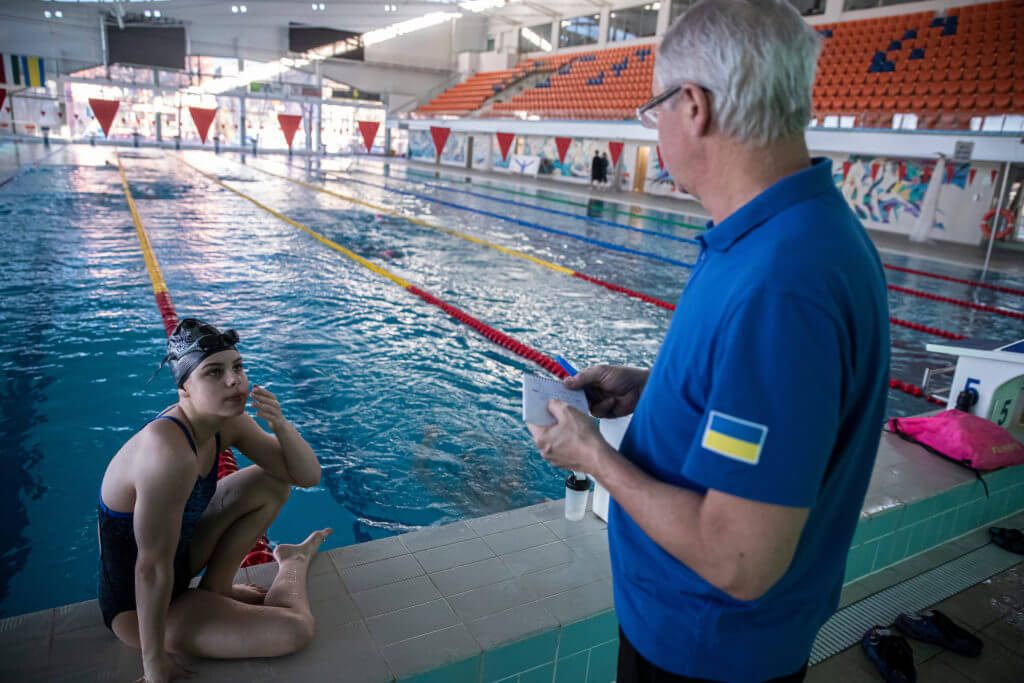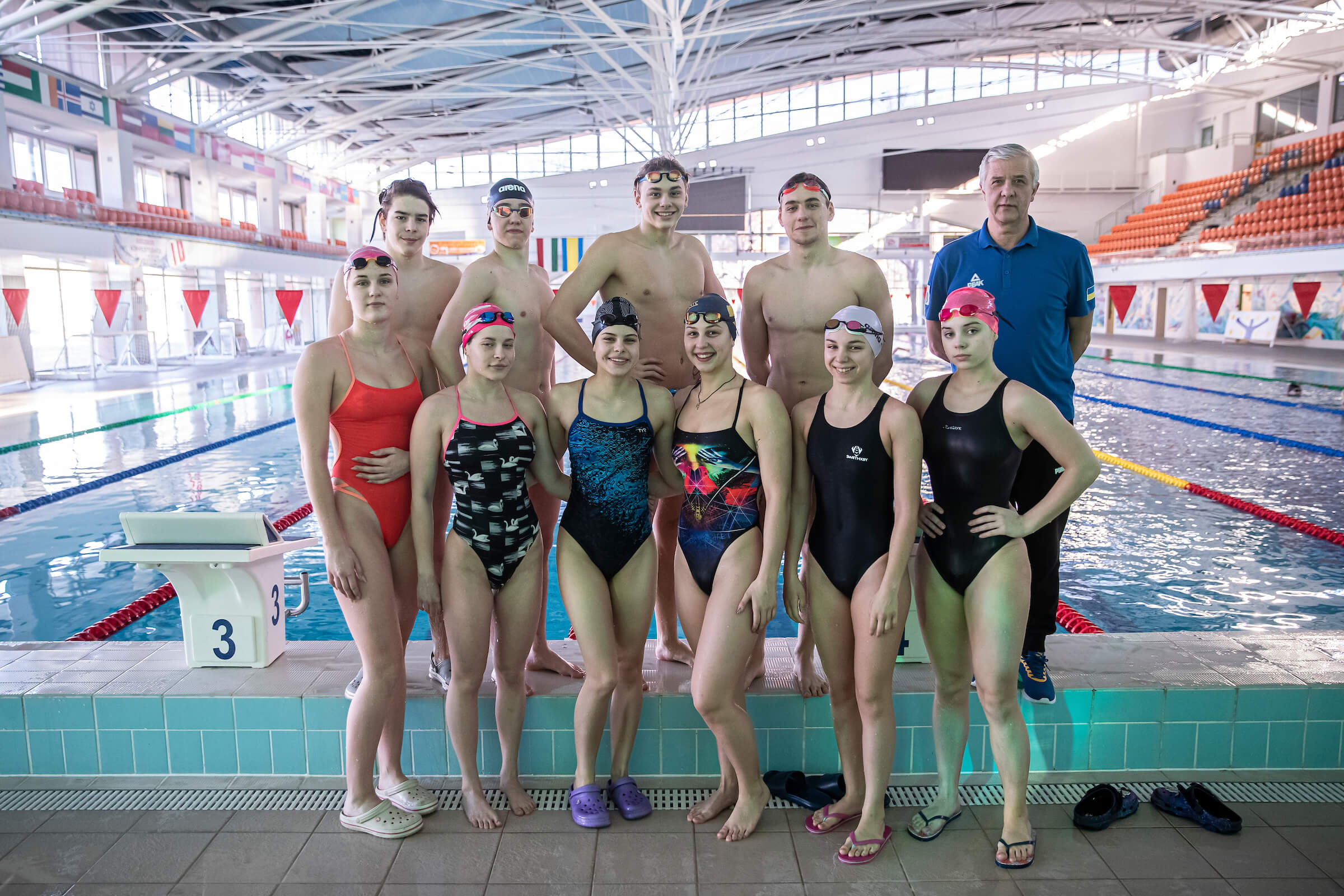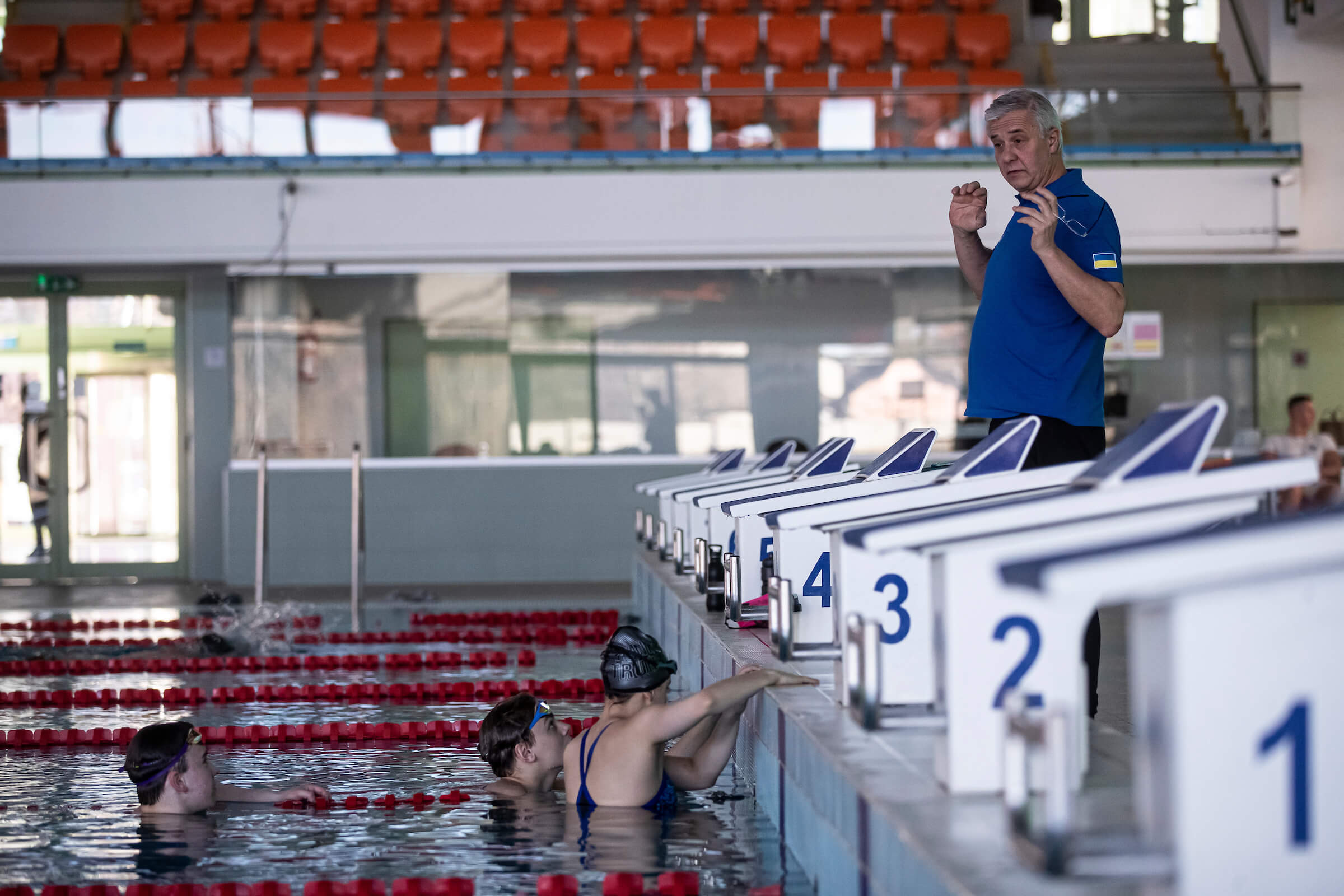Aquatics Teams in Hungary, Italy Rallying to Shelter Ukraine Athletes

Aquatics Teams in Hungary, Italy Rallying to Shelter Ukraine Athletes
Aquatics athletes from Ukraine are getting support, in moments small and large, from fellow athletes across Europe as the invasion of their country by Russia drags on.
The Hungarian Swimming Association this week has opened its doors to 23 junior swimmers from Ukraine, the bulk of that country’s junior national team. The swimmers and their coaches are training in the cities of Debrecen and Kaposvar, a total party of 34 people that includes several parents.
The trip, per a press release by the Hungarian Swimming Association, took the swimmers five days to get from Kyiv to Hungary via Romania. The swimming association received support from the Hungarian government as well as the two towns’ municipal governments to shelter the teens.

Athletes on the Ukrainian national junior team train in the Hungarian city of Debrecen; Photo Courtesy: HSA/Istvan Derencsenyi via LEN
Among the swimmers in the delegation is Oleksandr Zheltyakov, who won a silver medal in the men’s 100 backstroke at the 2021 European Junior Championships, and Viktoriya Kostromina, a bronze medalist on the mixed medley relay with Zheltyakov at those championships.
“We’ve done a lot of good things for Hungarian swimming in recent years, staged a lot of international events for FINA and LEN, received loads of positive feedbacks – but this is something different as we probably just saved lives, saved young swimmers from getting their careers ruined and their dreams shattered, and this is something words cannot really describe,” Hungarian Swimming Association president Sandor Wladar said in the release.
The two countries share an 85-mile border on the far west of Ukraine. The swimmers are able to stay in hotels, where they are being fed and can train twice a day. Wladar specifically cited Debrecen Sports School head Andras Becsky and Kaposvar Sport School head Tamas Dar. Support has also come from European Aquatics (LEN), backing a pledge of solidarity with Ukrainian athletes.
The conflict is personal for Wladar, who competed against and became friends with Ukrainian Olympian Sergey Fesenko. Fesenko, now based in the U.S. and watching the heartache in his home country from afar, stayed with Wladar during a visit of Hungary in 1992, after both had retired.
“The Ukrainian Swimming Federation, with the help of the parents and the coaches, managed to evacuate swimming kids from the cities which are shelled every day,” Fesenko said in a message. “We are grateful for our Hungarian friends for the invaluable support they rendered to the Ukrainian people and Ukrainian swimming in this difficult time for our country. We express our gratitude to the Prime Minister of Hungary, to the Hungarian Swimming Association and personally to President Sandor Wladar for helping our athletes and providing them excellent conditions for their trainings.”

Athletes on the Ukrainian national junior team train in the Hungarian city of Debrecen; Photo Courtesy: HSA/Istvan Derencsenyi via LEN
A similar story played out in artistic swimming, where members of the Ukrainian women’s synchronized team arrived in Rome via help from athletes in that country.
The Italian Swimming Federation sent a bus to the Ukraine-Hungary border to pick up 10 athletes and two coaches fleeing the fighting. They had been based in Kharkiv, reaching Hungary via Lviv. The athletes, ranging in age from 14 to 20, will train at the Italian Olympic facilities in Ostia.
“We know that in Ukraine those who protect us are dying, but we had to go away and leave our city,” Maryna Aleksiiva, who traveled with twin sister Vladyslava Aleksiiva, told the Associated Press. “This was very hard.”
Four athletes, including double bronze medalist Marta Fiedina, and three coaches remain in Ukraine. Fiedina and Anastasiya Savchuk won bronze in Tokyo in the duet event to go with team bronze, a squad that both Aleksiiva twins were on. Ukraine is one of the world powers in artistic swimming, finishing behind Russia and China in both Olympic events in Tokyo.



